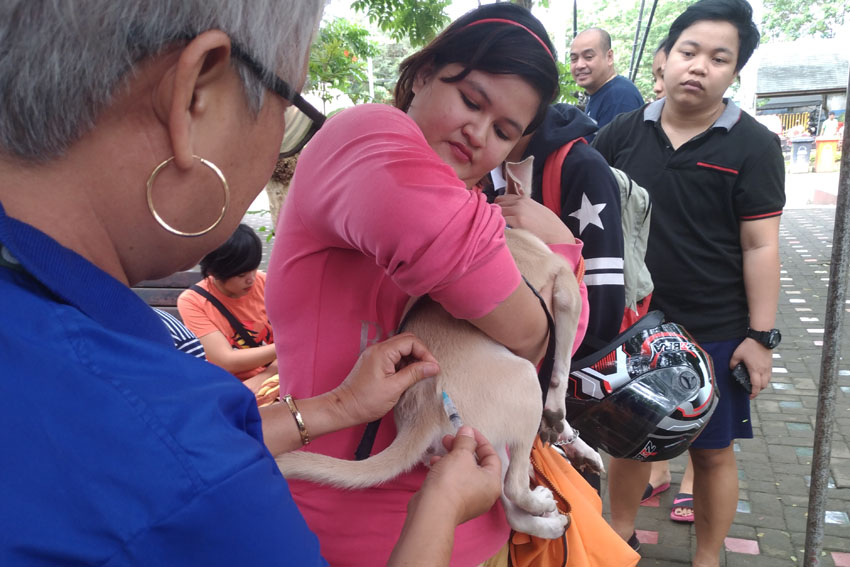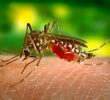
Pet owners took their cats and dogs for a free anti-rabies vaccination at the People’s Park on March 7, 2017. The free vaccination was initiated by the Office of the City Veterinarian for the Rabies Awareness Month. (davaotoday.com file photo)
DAVAO CITY, Philippines — The Animal Bite Treatment Centers in Region 11 recorded 48,123 bite incidents in 2016, a 32 percent increase from 2015 with a recorded 36,353 bite incidents.
Mary Divine Hilario, Regional Program Manager of the Department of Health Rabies Program said the increase in the recorded bite incidents is both good and bad news.
She said the increase of recorded cases “means that more people are now more aware that they can go to Animal Bite Treatment Centers to prevent contract the rabies virus.”
But she added the high number of bite incidents also increases the chance of a person contracting rabies.
Representatives of the Department of Agriculture and Department of Health on Monday, admitted there is still a long way to go towards their goal of a Rabies Free Philippines by 2020.
Hilario said they recorded 13 cases of human rabies, three cases lower than 2015. This translates to a 3.2 percent incidence rate, which Hilario said “is a bit closer” to the country’s goal of at least 1.5 percent incidence rate.
All cases of rabies in humans result into deaths, as no known cure has been found, Hilario said.
Dr. Armie Capuyan, veterinarian and Rabies Program Regional Coordinator said some 249,491 dogs were vaccinated in Region 11’s Animal Bite Centers, but they have yet to reach their goal of vaccinating at least 70 percent of the dog and cat population in the region.
“According to the World Health Organization’s recommendations, at least 70 percent must be vaccinated to create a herd immunity in the dog community,” Capuyan said.
Capuyan called on the public to be responsible pet owners by not letting their pet dogs loiter without supervision, and to regularly have them vaccinated.
“Ihikayat o i-campaign po natin sa mga pet owners na kailangan maging responsable sila na kailangan talian yung mga dogs para hindi maka-kagat ng other dogs at tsaka pabakunahan din po ang mga dogs nila (Let’s encourage pet owners to be responsible. They have to tie their dogs to prevent them from biting other dogs, and have them vaccinated),” Capuyan said.
Anti-rabies vaccines have been available for free in government Animal Bite Treatment Centers since 2014, Hilario said.
Dr. Vergel Bautista, Medical Coordinator of the Rabies Prevention and Control Program also cautioned the public against eating dog meat. Ethical considerations aside, Bautista said rabies can also be contracted through ingesting meat from a rabies infected dog.
“Yun yung first and foremost reason kung bakit natin dini-disourage ang pagkain natin ng meat ng aso. Di natin alam kung may rabies ba ‘yan or wala. Pag ka-ganon baka pwede right away ma transfer sa atin ‘yan (That is the first and foremost reason why we discoruage eating dog meat. We can’t determine if the dog had rabies or not. If there is, it could transfer to us right away),” Bautista said.
Bautista said they are conducting public information drives to achieve the goal of eliminating rabies in the country, but in case of a bite from possibly rabies infected animal, Bautista said the wound must first be thoroughly washed with water and soap before going to a nearby bite center.
“Studies have shown that after washing with soap and water, at least 50 percent of the virus are already removed from the wound,” Bautista said. (davaotoday.com)










